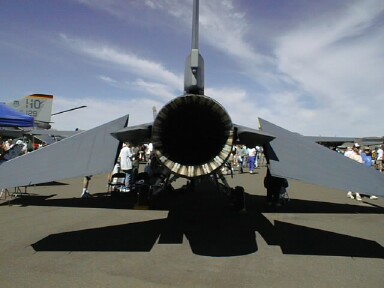American composer Tom Myron was born November 15, 1959 in Troy, NY. His compositions have been commissioned and performed by the Kennedy Center, the United States Holocaust Memorial Museum, the Portland Symphony Orchestra, the Eclipse Chamber Orchestra, the Atlantic Classical Orchestra, the Eastern Connecticut Symphony Orchestra, the Topeka Symphony, the Yale Symphony Orchestra, the Civic Orchestra of Chicago, the Bangor Symphony and the Lamont Symphony at Denver University.
He works regularly as an arranger for the New York Pops at Carnegie Hall, writing for singers Rosanne Cash, Kelli O'Hara, Maxi Priest & Phil Stacey, the Young People's Chorus of New York City, the band Le Vent du Nord & others. His film scores include Wilderness & Spirit; A Mountain Called Katahdin and the upcoming Henry David Thoreau; Surveyor of the Soul, both from Films by Huey.
Individual soloists and chamber ensembles that regularly perform Myron's work include violinists Peter Sheppard-Skaerved, Elisabeth Adkins & Kara Eubanks, violist Tsuna Sakamoto, cellist David Darling, the Portland String Quartet, the DaPonte String Quartet and the Potomac String Quartet.
Tom Myron's Violin Concerto No. 2 has been featured twice on Performance Today. Tom Myron lives in Northampton, MA. His works are published by MMB Music Inc.
FREE DOWNLOADS of music by TOM MYRON
Symphony No. 2
Violin Concerto No. 2
Viola Concerto
The Soldier's Return (String Quartet No. 2)
Katahdin (Greatest Mountain)
Contact featuring David Darling
Mille Cherubini in Coro featuring Lee Velta
This Day featuring Andy Voelker
|
|
|
|
| 
Friday, October 14, 2005
Sheer Volume

The following comes courtesy of an un-named source...
Orchestras have become louder since the 18th century. The potential for a problem was there from the beginning: brass instruments were designed for playing outdoors, while strings were intended for quiet, indoor reception. By the 20th century, violinists in orchestras reinforced their mellow instruments with louder, more shrill-sounding steel wire to be heard over the brass. Woodwind players then increased the width of their tubes in an effort to compete in what amounts to an acoustic arms race. According to journalist Brian Hunt of This is London, the result has been a drastic degradation of tone colour, and a higher rate of premature deafness in orchestral musicians than even among proud-to-be-loud rock musicians.
As a result of Mr. Hunt's recent article titled "Please Turn Down the
Orchestra" a survey of orchestral players was undertaken. The object was to
determine whether or not, in the opinion of the players, orchestras have
become too loud. This question was asked: "Do you, as a professional
orchestral musician think that orchestras have become too loud, and if so,
how has this affected you personally?" Following, in score order, are some
typical responses.
Flutist: "Yes, most decidedly. In fact the situation has deteriorated to
the point that I am actually looking forward to being demoted to 3rd flute
and piccolo where I will be able to make myself heard, at least on the
picc.."
Oboist: "I think so. I have trouble keeping up as far as volume is
concerned. I have finally resorted to two pieces of cedar shakes tied
together to make a reed and the conductor still keeps asking for more. I think they should put us on risers."
Clarinettist: "Perhaps. The conductor has asked me to stand up on all
solos so that the audience will notice me. I am also using one of those new
titanium reeds. The tone is a bit metallic, but it does cut through the mass
of string sound. I suppose the strings could play softer. I don't know; they
have never been asked to."
Bassoonist: "I really don't know. I didn't show up for the last three
concerts and nobody seemed to notice."
Hornist: "If he wants it louder, he should hire more horn players!"
Trumpet player: "I think we should play louder, faster, and put it
up an octave... Oh, and get us some risers"
Trombonist: "I really don't care. Just wake me up when we get to the last
movement. By the way, where is the party after the concert?"
Tuba player: "I never thought about it. What I want to know is why I'm
not allowed to wear my lederhosen at concerts. After all, I am principal of
the section!"
Percussionist: "What?"
First violinist: "No, I don't think so. When the brass come in we don't
have to worry about intonation in the fiddle section. I don't know what's
going on in the seconds. There are times when I can't hear them at all."
Second violinist: "Perhaps Things have become a bit more complicated. I
now use two bows, one for the soft spots and another for when the brass come
in. I use soap on that one instead of rosin."
Violist: "The seconds keep stealing our soap."
Cellist: "Well I guess so. At least we have had to play louder since the
bassoons stopped showing up."
Double bassist: "I don't know about the rest of the orchestra but all we
can hear back here is that damn tuba. They need to put us on risers."
posted by Tom Myron
|
| |



